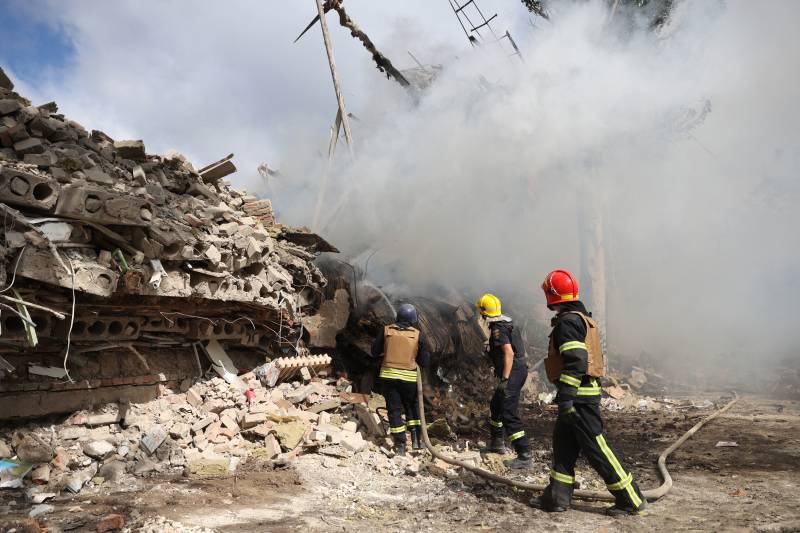War in Ukraine: latest developments

Stay tuned with 24 News HD Android App

Here are the latest developments in the war in Ukraine:
- Belarus strongman warns of 'nuclear abyss' -
Belarus President Alexander Lukashenko says Russia, Ukraine and the West must agree to halt the Ukraine conflict to avoid the "abyss of nuclear war", and accuses the West of seeking a conflict with Russia and of having "fomented" the Ukraine war.
"We must stop, reach an agreement, end this mess, operation and war in Ukraine," Lukashenko, Russian President Vladimir Putin's top ally, tells AFP in an exclusive interview in Minsk.
"There's no need to go further. Further lies the abyss of nuclear war. There's no need to go there," he says.
He says Kyiv authorities can end the war in Ukraine if they restart talks with Moscow and accept its demands.
Belarus has served as a staging ground for Russia's war in Ukraine, but Lukashenko has so far avoided becoming a party to the conflict.
- Nord Stream gas flows resume -
Russia resumes critical gas supplies to Europe through the Nord Stream 1 pipeline to Germany following 10 days of maintenance.
But with the pipeline operating at only a fraction of its capacity, and Russia having already cut back or suspended supplies to a dozen EU members in retaliation for Western sanctions, Europe is still bracing for energy shortages.
The EU on Wednesday urged member states to reduce their gas consumption by 15 percent over the coming months to secure their winter stocks.
But Hungary, which has resisted sanctions on Russian oil and gas, is seeking more, not less, Russian gas this year -- a request Russian Foreign Minister Sergei Lavrov says Moscow will "consider".
- Ukraine devalues currency -
Ukraine's central bank devalues the national currency, the hryvnia, against the dollar to shore up its foreign reserves and improve the competitiveness of Ukrainian exports in the face of a collapsing economy.
The National Bank revises the official exchange rate from 29.25 hyrvnia to the dollar to 36.57 hyrvnia to the dollar.
"The new hryvnia rate will become an anchor for the economy and will add its resilience in conditions of uncertainty," the bank says.
- Kharkiv shelled -
Three people are killed and 23 injured by Russian shelling of Ukraine's second-biggest city of Kharkiv, prosecutors say, as Moscow steps up its bombardments two months after being driven back from the city's northern outskirts.
The deaths come a day after three people were killed in shelling of a bus shelter in the city, including a 13-year-old boy.
- Ukraine lessons for China -
The head of the CIA, Bill Burns, says that China is probably looking to Ukraine for lessons on how to reassert its control over Taiwan.
Burns tells a security forum in Aspen, Colorado that Russia's experiences in the war could affect "how and when" Beijing would decide to use force against Taiwan.
Russia's failure to topple Ukraine's leadership in Kyiv showed that "you don't achieve quick, decisive victories with underwhelming force," he says.
"I suspect the lesson that the Chinese leadership and military are drawing is that you've got to amass overwhelming force if you're going to contemplate that in the future," he adds.
- ECB hikes interest rate -
The European Central Bank makes a bigger than expected half-point interest rate hike to combat soaring inflation, as President Christine Lagarde warns of a darkening economic outlook caused in part by the war in Ukraine.
Consumer prices rose in the eurozone rose by 8.6 percent in June, an all-time high for the club and well above the central bank's target of two percent, partly because of surging energy costs.
